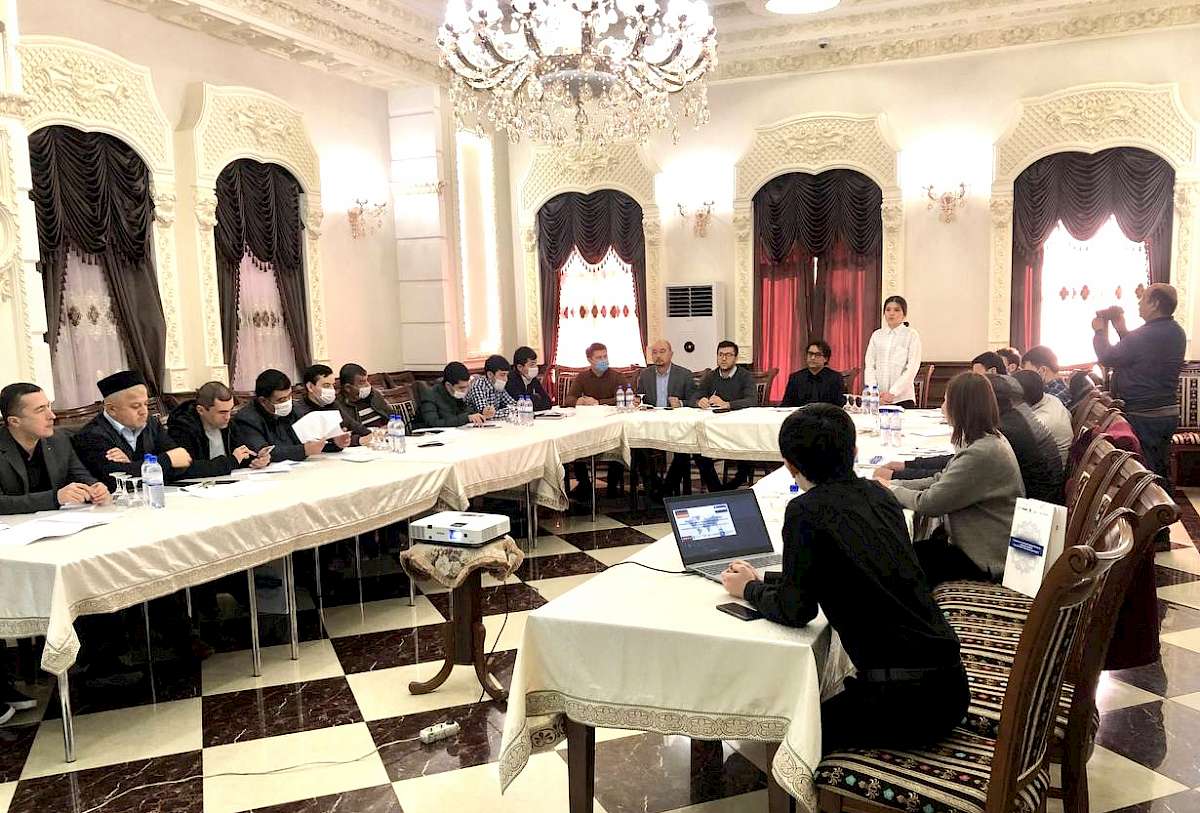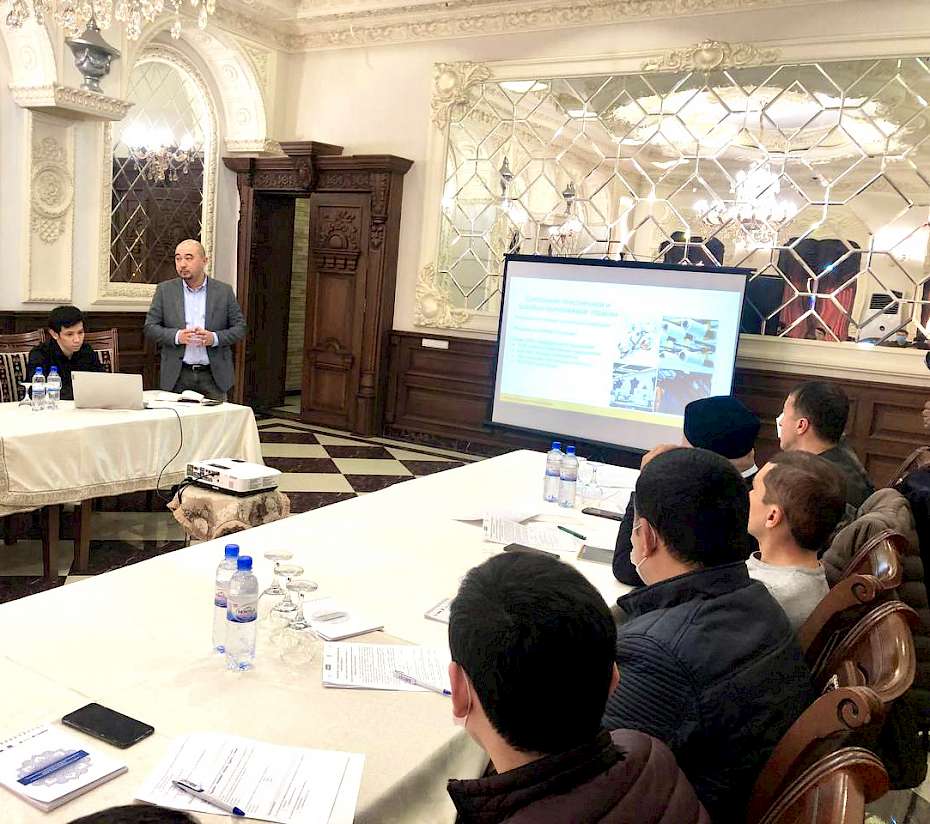
Uzbekistan has recorded strong economic growth over the last decade, driven in part by growing external trade and a changing export structure. The country has exported textile products worth $637.7 million to 54 countries in the first quarter of 2021, which is $174.9 million more than the country’s exports in the same period in 2020, according to a report published by the Statistics Committee. The country had exported textile goods worth $1.9 billion to 70 foreign countries in 2020 (Fibre2Fashion News Desk, 2021).
The diversification and modernisation of Uzbekistan’s economy is a policy priority for the government; and, in order to boost the economy, enabling conditions must be created for small and medium-sized enterprises (SMEs) to thrive.
Within the framework of the joint project “Small Measure Uzbekistan”, on February 2nd and 9th, the Association of Textile and Knitting Industry of Uzbekistan Uztextileprom, together with SEQUA and EnComPass consulting companies, held two training programmes in the cities of Tashkent and Samarkand. These events have been funded by the Confederation of the German Knitting Industry (Gesamtmasche) and the German Federal Ministry for Economic Cooperation and Development (BMZ).


Local and international experts exchanged knowledge and shared good practices with over 30 companies from Uzbekistan working in the textile and garment industry. Experts provided consulting services and market intelligence to companies on product certification and the requirements and processes needed for exporting certified products to EU markets. Moreover, Mr. Davrug Inogamdjanov, national SWITCH-Asia Expert also introduced Sustainable Consumption and Production (SCP) tools and practices that can be adopted in the production of textile and garments, as well as energy and resource efficient technologies that would facilitate the country’s transition towards a Green Economy.
As part of SWITCH-Asia’s policy support to the Republic of Uzbekistan, the programme is closely working with the Ministry of Economy and Poverty Reduction and the EU Delegation to integrate sustainable consumption and production into policy and practice, effectively supporting the country's transition to a green economy, working towards poverty reduction and mitigating the effects of climate change.
To this end, the experts of the SCP Facility are preparing a SCP Action Plan in addition to the measures included in the priority development areas defined in the Strategy of the Green Economy of the Republic of Uzbekistan. A targeted approach is being developed, and interested parties have beeninvited to provide comments on the draft proposal with an emphasis on the practical implementation of SCP practices.
The second topic of the SWITCH-Asia SCP Facility assistance concerns the improvement and implementation of SCP Tools and the Circular Economy Approach in the Textile Sector. The main objective of this work is to identify appropriate SCP tools for greening the supply chain, minimizing water and energy consumption, replacing the use of chemicals and facilitating the transition to sustainable production methods in the textile and clothing sector. An overview study on textiles and clothing and a comparative analysis of Uzbek enterprises operating in this sector is under preparation.
There is an increasing recognition of the urgent need to move from unsustainable consumption and production patterns to a green economy and sustainable development, especially during the post-pandemic economic recovery. This change requires adequate policies, implementation mechanisms with appropriate capabilities, awareness-raising and education, as well as innovation.
Related News
Ministry of Economy and Poverty Reduction, Information Service


